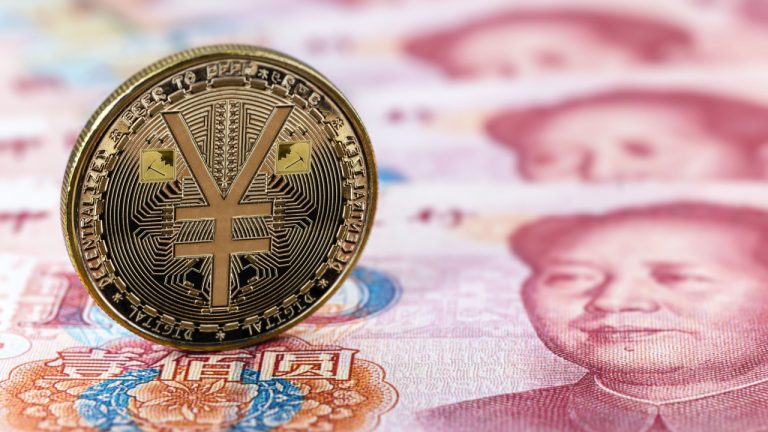
Spending with China’s state-issued digital currency has surpassed 100 billion yuan, close to $14 billion, by the end of August, the country’s monetary authority revealed. More than 5 million merchants now accept the digital yuan in 15 Chinese regions as Beijing continues to expand the pilot areas.
People’s Bank of China Reports 360 Million Digital Currency Payments
Transactions with China’s central bank digital currency (CBDC) exceeded 100 billion yuan in value ($13.9 billion) as of Aug. 31, 2022, rising from almost 88 billion yuan by the end of 2021, the People’s Bank of China (PBOC) announced on Wednesday. The spending involved 360 million transactions, according to a Reuters report quoting the monetary policy regulator.
The data has been released as financial authorities in the world’s most populous nation proceed with the digital yuan (e-CNY) roll-out and constantly increase the coverage of its trials. The CBDC has been introduced in 15 provinces and municipalities, with 5.6 million merchants now accepting the digital version of the Chinese yuan.
Pilot areas have seen almost 30 rounds of e-CNY subsidies this year, often distributed in red envelope campaigns such as one in Shanghai this past spring when $4.5 million in digital yuan was dispersed. These initiatives aim to stimulate consumption, fight the negative effects of the Covid-19 pandemic, and promote low-carbon transport, the PBOC pointed out.
Although the digital yuan has so far been mostly used for domestic and retail payments, Beijing intends to introduce it to the corporate and financial sectors, taxation and government affairs as well, the central bank indicated. It also wants to connect its platform to traditional digital payment systems such as Alipay and Wechat Pay, and recently urged for widening of the array of use-case scenarios.
Expanding cross-border payments with the e-CNY is also in the plans. The People’s Bank of China recently participated in the testing of international settlements with several CBDCs, along with the monetary authorities of Hong Kong, Thailand, and the United Arab Emirates, a project coordinated by the Bank for International Settlements (BIS).
Steps have been taken to connect the digital yuan infrastructure to the local digital payment system of Hong Kong. China’s special administrative region is preparing to trial its own CBDC. The pilot phase of the digital Hong Kong dollar, called e-HKD, is expected to begin by the end of the year and it comes after public consultations on the matter.
Do you think China will further accelerate the introduction of the digital yuan? Share your expectations in the comments section below.
Comments
Post a Comment